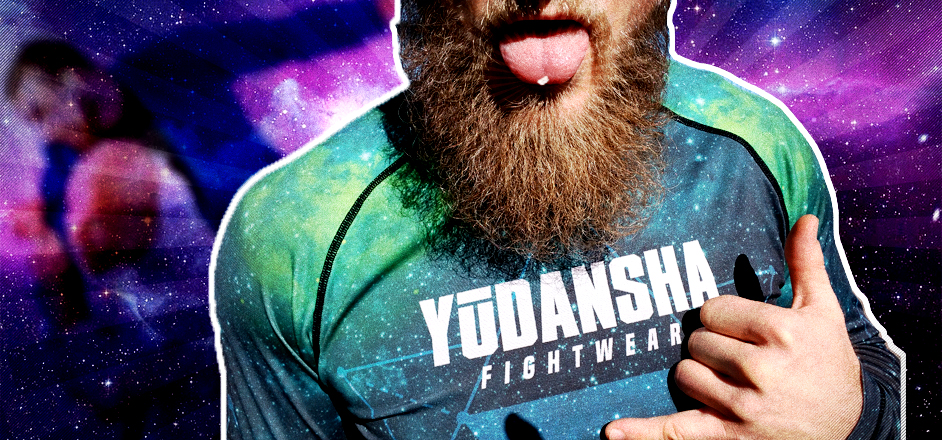LSD has helped this guy kick ass in jiu-jitsu. And go pro.
Using 1/10th of a hit during training and tournaments was the key to joining the ranks of the elite and getting paid to compete, says 34-year-old Randall — not his real name — who sports the cauliflower ear of a veteran fighter.
"I've gone from getting consistently silver medals to getting nothing but gold medals for the past year," he says.
On high doses of LSD, most people can barely wipe their own noses, let alone fight. So it's usually a drug fit for music festivals and camping trips and other places where no one's going to punch you in the face.
At low doses, though, LSD is a different drug. Coders in Silicon Valley and painters in Santa Fe say microdosing helps them find their groove. More than 1,500 microdosers have reported to psychologist James Fadiman that LSD and mushrooms sharpened pattern recognition and aided problem solving. Psychedelics could revolutionize whole industries, and become industries of their own.
"Microdosing is known to reliably induce flow states," says Paul Austin, head of The Third Wave, an organization with classes on microdosing pushing psychedelics into the mainstream. "For that reason, it's no surprise athletes have found success integrating microdosing into their routine."
Doc Ellis threw a no-hitter on LSD in the '70s. And we've written about a half-dozen elite athletes in long-distance running, mountain climbing and yoga who've said LSD and mushrooms get them into the athletic groove.
One fall Saturday, in the parking lot outside his training gym, we watch as Randall pulls a small square of LSD, 10 or 12 micrograms, out of a piece of tin foil to put on his tongue.
During the next 40 minutes, while he waits for the acid to kick in, we sit on a mat and talk. Nearby, MMA fighters tumble and spar. As the drug kicks in, you can see a change come over him. The intensity in his face drains.
On the training mat, Randall rolls with a succession of partners. He's quick. He's strong. He pancakes a guy and puts his knees on his neck. He chokes a dude out.

"LSD helps me tune out my inner dialog and be in the moment and in my body," he says. "When I slap hands (to start a match), my mind goes blank."
There's also time dilation. Psychedelics make ten seconds feel like ten minutes. So when opponents come at him, they're in slow motion, while he's at normal speed.
There are downsides. Once, at a tournament, Randall took 20 micrograms, twice his normal dose. It doubled his confidence, too. During one fight, his arm was pinned under a guy. LSD is a painkiller, a headache medicine. As he yanked his arm out, he didn't realize his bicep tendon was ripping. The muscle detached from the bone and rolled up under his skin. It took surgery and six months to heal.
Randall is not the world's greatest jiu-jitsu fighter. He's not even the best in this practice session. Bigger guys still beat him. But he's not sluggish or dazed. The walls clearly aren't melting. He's not freaking out.
When he rolls in his next professional match, in November, he'll dose LSD.
"In the finals, sober, the pressure I'd put on myself would cause me to fail in clutch situations," he says. "No more."

There's no rule in his jiu-jitsu league against psychedelics. Yes, Randall thinks tripping is an unfair advantage — but no more than having a personal trainer or chef.
All of this matters outside the small world of jiu-jitsu.
Randall's dad left when he was a toddler. He watched his step-dad abuse his mom. As he grew up, he carved pentagrams into his arms, dared strangers to punch him in the face, and broke beer bottles over his own head. In 2009, kicked out of school, addicted to coke, meth, pills and booze, he slit his wrists in the bathtub. He still carries the scars.
Sports brought him back from the dead. His life became jiu-jitsu.
"Jiu-jitsu made me feel good about myself," he says.
He went back to school. Got a bachelor's degree. Then a masters degree in Sport/Performance/Exercise Psychology. A girlfriend. Two dogs. A career.
Jiu-jitsu doesn't just help people kick ass, fighters say.
"It creates a better person, a better human being, even outside these doors," says Randall's coach. "You eat better, sleep better. It creates community."
His coach doesn't know about Randall's' LSD use. No one does, except his fiancée. She rolls jiu-jitsu, too. Sometimes on acid.
They seem like a match made in drug heaven. They've set the date for next year for a wedding — a LSD jiu-jitsu wedding.
At their ceremony, Randall and his groomsmen will wear black jiu-jitsu kimonos. His fiancee and her bridesmaids will wear white ones. Instead of a first dance, they plan to roll jiu-jitsu.
"I plan to tap her out a couple times," Randall says. His fiancée laughs.
And — oh yeah — Randall plans to microdose LSD.
"It's a once-in-a-lifetime day," Randall says. "And I want it to be the best day it can be."






Leave a Reply
You must be logged in to post a comment.